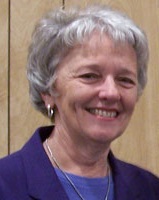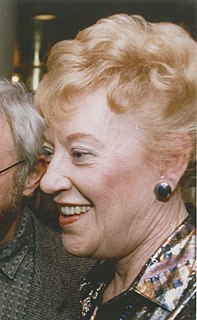Related Research Articles

John George Diefenbaker was the 13th prime minister of Canada, serving from 1957 to 1963. He was the only Progressive Conservative party leader between 1930 and 1979 to lead the party to an election victory, doing so three times, although only once with a majority of the seats in the House of Commons.
William Alexander Blaikie was a Canadian politician. He served as a member of Parliament (MP) from 1979 to 2008, representing Elmwood—Transcona and its antecedent ridings in the House of Commons of Canada for the federal New Democratic Party. Following his retirement from federal politics, he was a member of the Legislative Assembly of Manitoba from 2009 until 2011, representing the Winnipeg division of Elmwood as a member of the New Democratic Party of Manitoba, and served as Minister of Conservation and Government House Leader.

The Ontario New Democratic Party is a social-democratic political party in Ontario, Canada. The party currently forms the Official Opposition in Ontario following the 2018 general election. It is a provincial section of the federal New Democratic Party. It was formed in October 1961 from the Co-operative Commonwealth Federation and the Ontario Federation of Labour (OFL).

Alexa Ann McDonough was a Canadian politician who became the first woman to lead a major, recognized political party in Nova Scotia, when she was elected the Nova Scotia New Democratic Party's (NSNDP) leader in 1980.
Dalton Kingsley Camp, was a Canadian journalist, politician, political strategist and commentator, and supporter of the Progressive Conservative Party of Canada. Although he was never elected to a seat in the Canadian House of Commons, he was a prominent and influential politician and a popular commentator for decades. He is a central figure in Red Toryism.

The 1957 Canadian federal election was held June 10, 1957, to select the 265 members of the House of Commons of Canada of the 23rd Parliament of Canada. In one of the greatest upsets in Canadian political history, the Progressive Conservative Party, led by John Diefenbaker, brought an end to 22 years of Liberal rule, as the Tories were able to form a minority government despite losing the popular vote to the Liberals.
The first Progressive Conservative Party of Canada leadership election was held in 1927, when the party was called the Conservative Party. Prior to then the party's leader was chosen by the caucus or in several cases by the Governor General of Canada designating a Conservative MP or Senator to form a government after the retirement or death of an incumbent Conservative Prime Minister.
William Heward Grafftey, was a Canadian politician and businessman.

Julia Verlyn LaMarsh, was a Canadian politician, lawyer, author and broadcaster. In 1963, she was only the second woman to ever serve as a federal Cabinet Minister. Under Prime Minister Lester Pearson's minority governments of the middle and late 1960s, she helped push through the legislation that created the Canada Pension Plan and Medicare. As Secretary of State, she was in charge of Canada's Centennial celebrations in 1967. After leaving politics in 1968, she wrote three books, and had her own radio show on CBC Radio. She was stricken with pancreatic cancer in 1979 and was given the Order of Canada at her hospital bed. She died a few days short of the 20th anniversary of her first political election victory, in 1980.
John Henry "Jack" Horner was a Canadian rancher, politician, and Cabinet minister.

Andrew James Scheer is a Canadian politician who has served as the member of Parliament (MP) for Regina—Qu'Appelle since 2004. Scheer served as the 35th speaker of the House of Commons from 2011 to 2015, and was the leader of the Conservative Party and leader of the Official Opposition from 2017 to 2020.

The 1976 Progressive Conservative leadership election was held at the Ottawa Civic Centre in Ottawa on February 22, 1976, to elect a leader of the Progressive Conservative Party of Canada to replace Robert Stanfield, who had resigned after losing the 1968, 1972, and 1974 elections. It unexpectedly elected a 36-year-old, little-known PC Member of Parliament from Alberta as the party's new leader. Joe Clark defeated Claude Wagner on the fourth ballot of the convention by a margin of 65 votes.

The 1967 Progressive Conservative leadership election was held to choose a leader for the Progressive Conservative Party of Canada. The convention was held at Maple Leaf Gardens in Toronto, Ontario, Canada between September 4 and 9, 1967. Robert Stanfield was elected the new leader.

On March 29, 2006 it was announced, in accordance with the Green Party of Canada constitution that there would be a leadership election held August 24–27, 2006 in Ottawa.
The Green Party of Canada was founded at a conference held at Carleton University in Ottawa in 1983.

Flora Isabel MacDonald, was a Canadian politician and humanitarian. Canada's first female foreign minister, she was also one of the first women to vie for leadership of a major Canadian political party, the Progressive Conservatives. She became a close ally of Prime Minister Joe Clark, serving in his cabinet from 1979 to 1980, as well as in the cabinet of Prime Minister Brian Mulroney from 1984 to 1988. In her later life, she was known for her humanitarian work abroad. The City of Ottawa recognised MacDonald on July 11, 2018 by naming a new bicycle and footbridge over the Rideau Canal the Passerelle Flora Footbridge.
In 1963, the Quebec wing of the Social Credit Party of Canada split off from the national party as the Ralliement des créditistes. The split had its roots in a long-standing dispute between the de facto leader of the Ralliement, Réal Caouette, and the party's national leader, Robert N. Thompson. At the party's 1960 leadership convention, held two years after the party lost all of its seats in the House of Commons of Canada, Thompson defeated Caouette for the leadership. The party returned to Parliament in the 1962 federal election, but all but four of its 29 MPs came from Quebec. Under the circumstances, Thompson was all but forced to name Caouette as deputy leader of the party. The relationship was strained, however, and the strain was exacerbated when the party failed to make any gains in its old heartland of the Prairies in the 1963 federal election. Only Thompson and three others were elected outside of Quebec, while 20 Socreds were elected in Quebec. The two factions of the party were not re-united until October 1971.

David James Walker, was a Canadian politician.
In Canadian politics, a leadership review is a vote held at a political party convention in which delegates decide whether to endorse the incumbent party leader or schedule a leadership convention to elect a new leader. In most parties at present, such a vote is required at the first convention following a general election. While a leadership election is only required if the incumbent leader fails to receive support from a simple majority of delegates, in practice leaders who do not win the review by a substantial margin are expected to either call a leadership election and re-offer or resign altogether. The term also refers to reviews under the Reform Act, in which the party caucuses in the House of Commons decide on whether to retain the leader.

The 1956 Progressive Conservative leadership election was held to choose a leader for the Progressive Conservative Party of Canada. The convention was held at the Ottawa Coliseum in Ottawa, Ontario, Canada. The convention began on December 13, 1956 with voting occurring on December 14 when John Diefenbaker was elected the new leader.
References
- ↑ "Diefenbaker Blasts Party's Policy on '2-Nation' Canada", Chicago Tribune , September 9, 1967
- 1 2 3 "You Asked Us: About Mary Walker-Sawka". Montreal Gazette , July 27, 1968.
- 1 2 Sylvia Bashevkin, Opening Doors Wider: Women's Political Engagement in Canada. UBC Press, 2010. ISBN 9780774858717.
- ↑ "Civil Service May Be Bigger But Not Better, Says Hees". Ottawa Journal , August 28, 1967.
- 1 2 3 4 5 "The lone woman among candidates". The Globe and Mail , September 9, 1967.
- 1 2 3 "Tories hold a big oratorical binge in the Gardens". Ottawa Journal , September 9, 1967.
- 1 2 "All for $100 pension". The Globe and Mail , September 9, 1967.
- 1 2 "11 make last pitch, none captures crowd". The Globe and Mail , September 9, 1967.
- ↑ "How they sound to a Quebecker". Toronto Star , September 9, 1967.
- ↑ "The longest day: amid heat, rumors and vote-juggling, a new leader". The Globe and Mail , September 11, 1967.
- ↑ "Would Take Ouimet's Job". Ottawa Journal , November 4, 1967.
- ↑ "Leadership mechanism pondered: Tories say they're one big, happy family". The Globe and Mail , December 11, 1967.
- 1 2 "Dief: Best actor?". The Globe and Mail , May 22, 1968.
- ↑ "You Asked Us: About Mary Walker-Sawka". The Province . July 27, 1968. p. 66. Retrieved January 4, 2019– via Newspapers.com.